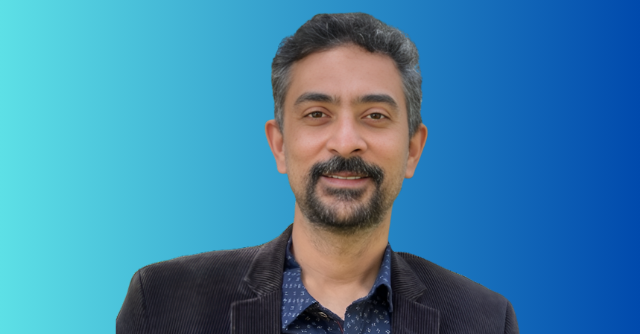
Kyndryl India’s ‘innovation under constraint’ approach influences global strategy


IT and managed service provider Kyndryl has come a long way from 2021, when it was spun off from its parent company, IBM. With operations in over 60 countries and a workforce of more than 80,000 skilled professionals (one-third are based in India), Kyndryl designs, builds, and manages mission-critical IT systems that power the vital operations of the world’s largest organisations.
Within its global structure, Kyndryl India holds a critical position. Not only does it serve the domestic Indian market, but it also houses a much larger team that functions as an integral part of Kyndryl’s global delivery engine.
“India is not just a delivery hub, but also a strategic core for our global operations,” said Sreekrishnan Venkateswaran, the chief technology officer at Kyndryl India, in an interview with TechCircle.

Venkateswaran has been a career-long IBM-er, joining the technology giant right after completing a master’s from IIT Kanpur and a bachelor’s from NIT Calicut. He began his journey in IBM’s Systems Core division, later spending time in Global Business Services (GBS), and eventually in Global Technology Services (GTS), the division that later became Kyndryl. Beyond his role as the CTO for Kyndryl India, he holds a global designation as a Kyndryl Fellow, a role held by only six individuals worldwide. In this capacity, he contributes to technology strategy and innovation initiatives.
Innovation at Kyndryl India
Speaking about Kyndryl’s technology and innovation strategy, Venkateswaran said that today, the company is structured around six core market-aligned practices: Cloud; Application, Data, and Artificial Intelligence (AI); Security and Resiliency; Workplace Services; Mainframe Modernisation; and Network and Edge. Overarching all of these is Kyndryl Consult, which serves as a strategic umbrella, driving integration and innovation across our offerings. Today, the majority of the IP and services are aligned with these six pillars, which have matured over the last three to four years.
“Kyndryl India contributes meaningfully to all six practices, and many of Kyndryl’s global offerings are developed or refined here. The frugal engineering innovations we apply to meet the demands of the Indian market are often adopted globally, while best practices from our international teams also help elevate our domestic operations,” he said.

Kyndryl India serves a few 100 customers across sectors such as BFSI, telecom, pharma, automotive, retail, and manufacturing. Some of them are Canara Bank, Suryoday Bank, Vodafone, Bangalore International Airport, Noida International Airport, Central Board of Direct Taxes (CBDT), Dr. Reddy’s, Dr. Lal PathLabs, Mother Dairy.
“The Indian market presents its own set of challenges that demand ingenuity: massive scale, extreme variability in demand, and intense cost sensitivity. For example, we’ve partnered with Airtel to implement SD-WAN solutions for the Indian tax department, a clear example of operating at scale with precision. In such an environment, frugal engineering isn’t just a choice; it’s a necessity,” explained Venkateswaran.
Another area where Kyndryl India applies a frugal engineering approach is in the implementation of generative AI solutions. Many of its clients, especially in the banking and government sectors, prefer generative AI applications to run on-premises due to data privacy and control concerns. Hosting large language models within internal firewalls poses technical challenges, particularly around compute efficiency.

In such cases, the team utilises model quantisation, which compresses models to run on less advanced hardware with minimal accuracy trade-offs. “This approach reflects frugal engineering, which I call innovation under constraint, and is increasingly a defining capability of Kyndryl India with global relevance.”
Anticipating the next big technological disruption
Speaking further on AI and generative AI in particular, Venkateswaran said that the technology has advanced significantly across several fronts, contextual understanding, multimodality, and fine-tuning have all matured, making generative AI more practical and impactful. “Today, nearly every customer starts with a key question: ‘How AI- or GenAI-ready are you?’ showing how central this capability has become,” he noted.
Kyndryl Research unit at Kyndryl, besides being the innovation hub of the firm, also acts as an early warning radar for emerging tech trends across time horizons. These are horizon-based frameworks to track and anticipate new technology disruption. Horizon Zero covers what’s happening now; Horizon One looks six months ahead; Horizon Two spans the 6–18 month window; and Horizon Three focuses on innovations beyond 36 months. The goal is to identify trends aligned with specific countries, markets, and customer needs, and begin building relevant capabilities early.

“For example, in India, areas identified in Horizon Zero are already being assetized. One key focus across markets is quantum safety. With growing concern around quantum computing's impact on data security, especially in sectors like financial services, we’re assessing vulnerabilities and preparing strategies to mitigate future risks,” he explained.
Beyond his role at the firm, Venkateswaran is also appointed as the Professor of Practice, an initiative by the University Grants Commission (UGC) that brings industry and other professional expertise into academic settings. For the past two years, he has served as a Professor of Practice in the Computer Science department at BITS Pilani, teaching courses on Generative AI application architecture, modern application architecture for cloud and edge, and cloud computing.
